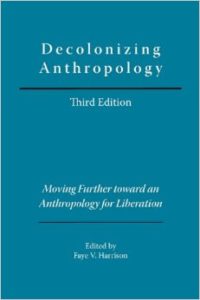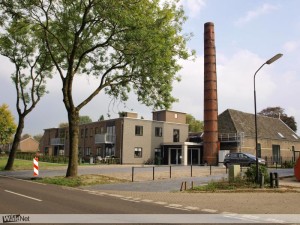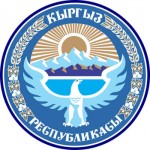There Is A Solution To Climate Change ~ And It Is Carbon Negative Technology
 Climate change poses the greatest threat to human civilization as we know it. Yet, governments around the world are reluctant to take drastic action to avert a climate change catastrophe even though we have the means to do so, as I will point out in the latter part of this essay.
Climate change poses the greatest threat to human civilization as we know it. Yet, governments around the world are reluctant to take drastic action to avert a climate change catastrophe even though we have the means to do so, as I will point out in the latter part of this essay.
But let’s take things from the start and look at the latest attempt of the part of the world’s governments to redress the problem of climate change, i.e., the Paris Agreement of late 2015.
In contrast to the Kyoto Protocol, whose provisions run out in 2020, the Paris deal includes no legally binding carbon dioxide emissions limits. There are no mandatory emission limits and no mandatory payments to help poor nations develop clean energy technologies, nor to mitigate the damages caused by climate change on poor nations, when the damage was historically caused by the rich nations. Mandatory emissions limits are necessary for the carbon market to operate. What is traded in the carbon market is the right to exceed one’s mandatory limits. With no mandatory limits, there can be no carbon market. The entire world is clamoring for a “price on carbon”: this is the carbon market. The six largest oil and gas companies in the world publicly support a price on carbon (Including Shell, BP, Statoil, Total and Engie). Yet the Paris Agreement undermines the very foundation for a price on carbon by requiring no mandatory emission limits.
Why did the Paris climate change negotiations move away from mandatory targets on carbon emissions and adopted instead a voluntary approach to the climate change challenge? Because a legally binding treaty that needed ratification by governments back home would have reduced substantially the chances of reaching any kind of an agreement.
This is certainly the case for one of the world’s biggest polluters, i.e., the United States. Any treaty on climate change that made its way to Capitol Hill would be shredded into pieces by the Republican-controlled Congress.
However, as time goes by, it is certain that more and more people will realize that the political compromise made in Paris over mandatory emissions comes at a great cost. Our ability to control rising temperatures caused by carbon dioxide accumulated in the air is greatly hindered since voluntary agreements guarantee failure.
But there is more. As the latest Intergovernmental Panel on Climate Change report points out, carbon emission cuts are not enough to slow down global warming. According to IPCC, we are headed with certainty towards an increase in temperatures by three degrees Celsius by 2100, although there are scientists who believe that two degrees of warming is “a recipe for disaster.” It suffices to recall the superstorm Sandy that closed down New York City for weeks, with flooded subways, leaving entire neighbourhoods without electricity, no schools, no law enforcement, and automobiles floating in the streets of this proud city. Climate change means an increase in the frequency and severity of such climate events. This means three or four Superstorm Sandies every year in New York, and the city cannot survive such climate change.
In addition to reducing drastically emissions through mandatory limits and adopting clean energy systems, it is now imperative that we utilize negative carbon technologies to remove existing carbon dioxide from the air. This was required by the IPCC, the scientific foundation of the climate negotiations, in its November 2014 5th Assessment Report. We procrastinated too much and now we have to massively reduce the CO2 that is already in the atmosphere in addition to reducing emissions. There are carbon negative technologies in Silicon Valley, like those employed by Global Thermostat, that are operating at SRI in Menlo Park California, which can offer a solution to the greatest threat facing the future of human civilization as we know it. This requires that we accept mandatory emission limits and reactivate the carbon market that is based on mandatory emissions, and was trading $175Bn/year by 2011.
The funding from the carbon market suffices to implement and scale up carbon removal around the world, as the IPCC requires, for example through carbon negative carbon plants that clean the atmosphere while they produce electricity- and do all of this in a low cost and profitable fashion. A proposal made by the author in Copenhagen COP15 was to use the Kyoto carbon market to offer finance to scale up globally such carbon negative carbon plants in poor nations, thus providing electricity that is needed by 1,3 Bn people around the world that currently have no access to electricity, all this while cleaning the planet’s atmosphere. This was called the Green Power Fund and required $200Bn/year for building carbon negative power plants; instead the Green Climate Fund was made into law, changing one word in its title and severing its connection from the source of funding, the carbon market of the Kyoto Protocol.
The reason the Climate Fund had its connection severed from its very source of funding, the carbon market of the Kyoto Protocol, was none other than the insistence of the US Congress – through its unanimously voted Byrd-Hagel Act — that there be no mandatory emissions limits.
But there is technology that can remove carbon from the atmosphere as required by IPCC. It is already operating in the Silicon Valley.
The carbon negative technologies in Silicon Valley, like those employed by Global Thermostat, which are fundamentally different from the now defunct carbon capturing and storing technologies, can offer a potential solution to the greatest threat facing the future of human civilization as we know it.
Such technologies, if employed on a global scale, can be used to clean the air from carbon dioxide, acting like trees do but much faster, as is needed now. Moreover, they are quite inexpensive and offer the potential of financial rewards, thus making them an attractive incentive to investors and enterpreneurs since, again, the logic of the global economy is not going to change overnight and we certainly cannot wait for the materialization of the “ideal society” for the planet and the future of human civilization to be saved.
At the same time, this is not to suggest that technology is magic. Technology does not exist in a vacuum nor can it be expected to be our robotic slave. We need to change today’s global financial institutions and the prevailing economic values as well. Economic values decide what is meant by economic progress. Today, economic values are based on short-sighted goals and on individualistic markets that defy logic, since they assign no value to clean air, to clean water or to biodiversity on which human survival depends. Assigning no value to the global commons–clean water, clean air, and biodiversity–leads to actions that threaten human survival. This has to change and can change. In the new Anthropocene era, humans are the most important geological force on the planet, and only with the right economic values can humankind survive.
Graciela Chichilnisky is Professor of Economics and of Statistics at Columbia University, Visiting Professor of Economics at Stanford University, Founder and CEO of Global Thermostat, and the architect of the Kyoto Protocol Carbon Market. www.chichilnisky.com
Removing CO2 From The Atmosphere
VIDEO: Removing CO2 from the atmosphere
The world cannot avoid catastrophic climate change by reducing emissions of greenhouse gases alone. Part of the solution must be removing CO2 that is already in the atmosphere, as Graciela Chichilnisky explained at the 2015 Blouin Creative Leadership Summit. She is the CEO of Global Thermostat, a firm whose revolutionary technology will be used in carbon-negative power plants that generate electricity while cleaning the atmosphere. Her equipment can convert existing fossil fuel plants, and the global carbon market’s clean development mechanism can help developing nations pay for the thousands of new clean power plants needed.
The plants will also generate revenue by using the extracted CO2 to produce carbonated beverages, fertilizers, and even synthetic gasoline. Chichilnisky envisions a future where Global Thermostat inexpensively licenses its technology to franchises all over the world, which can use crowdfunding to spread as fast as needed. She says this “is critical to resolving the climate change problem.”
Carole McGranahan & Uzma Z. Rizvi (Eds,) ~ Decolonizing Anthropology
 Just about 25 years ago Faye Harrison poignantly asked if “an authentic anthropology can emerge from the critical intellectual traditions and counter-hegemonic struggles of Third World peoples? Can a genuine study of humankind arise from dialogues, debates, and reconciliation amongst various non-Western and Western intellectuals — both those with formal credentials and those with other socially meaningful and appreciated qualifications?” (1991:1). In launching this series, we acknowledge the key role that Black anthropologists have played in thinking through how and why to decolonize anthropology, from the 1987 Association of Black Anthropologists’ roundtable at the AAAs that preceded the 1991 volume on Decolonizing Anthropology edited by Faye Harrison, to the World Anthropologies Network, to Jafari Sinclaire Allen and Ryan Cecil Jobson’s essay out this very month in Current Anthropology on“The Decolonizing Generation: (Race and) Theory in Anthropology since the Eighties.”
Just about 25 years ago Faye Harrison poignantly asked if “an authentic anthropology can emerge from the critical intellectual traditions and counter-hegemonic struggles of Third World peoples? Can a genuine study of humankind arise from dialogues, debates, and reconciliation amongst various non-Western and Western intellectuals — both those with formal credentials and those with other socially meaningful and appreciated qualifications?” (1991:1). In launching this series, we acknowledge the key role that Black anthropologists have played in thinking through how and why to decolonize anthropology, from the 1987 Association of Black Anthropologists’ roundtable at the AAAs that preceded the 1991 volume on Decolonizing Anthropology edited by Faye Harrison, to the World Anthropologies Network, to Jafari Sinclaire Allen and Ryan Cecil Jobson’s essay out this very month in Current Anthropology on“The Decolonizing Generation: (Race and) Theory in Anthropology since the Eighties.”
Read more: http://savageminds.org/series/decolonizing-anthropology/
Free Access To Oxford University Press Resources On Refugee Law
![]() In response to the refugee crisis in Europe, Oxford University Press has made more than 30 book chapters, journal articles, and pieces of content from online resources freely accessible to assist those working with refugees on the ground, as well as anyone who would like to know more about the framework of rights and obligations concerning refugees. The materials are structured around four key questions: who is a refugee, what rights do they have, what are transit states’ obligations, and what are the duties of the state where a refugee applies for asylum. Other useful resources are linked to at the bottom of the page.
In response to the refugee crisis in Europe, Oxford University Press has made more than 30 book chapters, journal articles, and pieces of content from online resources freely accessible to assist those working with refugees on the ground, as well as anyone who would like to know more about the framework of rights and obligations concerning refugees. The materials are structured around four key questions: who is a refugee, what rights do they have, what are transit states’ obligations, and what are the duties of the state where a refugee applies for asylum. Other useful resources are linked to at the bottom of the page.
- Who is a refugee?
- What rights do refugees have?
- What are the obligations imposed on states which refugees pass through en route to their destination of choice (transit states)?
- What are the obligations imposed on states in which refugees apply for asylum?
- Helpful Links
Read more: http://opil.ouplaw.com/page/refugee-law#
Dorpstimmerman tovert melkfabriek om in centrum voor zorg en wonen
In het Friese Garyp heeft het timmerbedrijf van Johan Timmermans de zuivelfabriek in zijn eigen dorp verbouwd. Het pand biedt nu onderdak aan zorgvoorzieningen, kinderopvang en levensloopbestendige woningen voor ouderen. Dankzij deze timmerman die bedenker, ontwerper, eigenaar, opdrachtgever, uitvoerder en verhuurder in één is.
De Timmermantsjoender, – tsjoender is tovenaar in het Fries -, onder die naam begon Johan Timmermans in 2001, hij was 19, een eigen onderneming vanuit de woonboerderij van zijn ouders. In de beginjaren hield hij zich nog bezig met kleine verbouwingen, dakramen plaatsen, badkamers verbouwen, deuren vervangen, dat soort klussen. De zaken gingen goed, zo goed zelfs dat hij twee jaar later al met zijn bedrijf kon verhuizen naar een eigen bedrijfsloods op het industrieterrein van Garyp. De klussen werden omvangrijker en uitdagender. Met als pronkstuk de herbestemming van een monumentale boerderij in het dorp Donkerbroek. Johan Timmermans: ‘Ik heb iets met mooie oude gebouwen. Deze boerderij stond op de nominatie om gesloopt te worden. Dat is voorkomen door de agrarische bestemming te veranderen. We hebben dit karakteristieke pand weer in ere kunnen herstellen door er een fraaie woning van te maken.’ Het succes van deze herbestemming riep een nieuwe ambitie in hem wakker. Dat was in 2009.
De hamvraag
In datzelfde jaar stond in zijn eigen dorp de directeurswoning van de voormalige zuivelfabriek te koop. Daar wilde de ambitieuze timmerman wel wonen. Eenmaal in gesprek over deze aankoop, polste Johan of hij ook de hele locatie met het ernaast gelegen fabriekspand kon kopen. Daar had de voorgaande veertig jaar een appendagefabriek voor machineonderdelen in gezeten. Johan Timmermans: ‘De eerste ingeving is door de bank genomen dat je gaat slopen om iets nieuws op zo’n fabrieksterrein te bouwen.’ Dat lag ook voor de hand. Maar met de klus in Donkerbroek nog vers in het geheugen ging zijn voorkeur er naar uit om het gebouw te behouden. De melkfabriek was een begrip in het dorp, een niet weg te denken gebouw. Hij nam zich bovendien voor om bij de keuze voor een nieuwe bestemming ook uit te zoeken hoe dit ten goede kon komen van de dorpsgemeenschap. Johan Timmermans: ‘Tijdens een rondgang door de fabriek viel me gelijk op dat het gebouw een heel eigen karakter heeft. Ik zag ook genoeg potentie om er een nieuwe bestemming aan te geven. De hamvraag was alleen: Wat stop je er dan in?’ De jonge ondernemer is als eerste op de huisarts in het dorp afgestapt; die zat met zijn praktijk in een noodcabine. Johan: ‘Toen ik over mijn verbouwplannen voor de fabriek vertelde, was er van zijn kant meteen interesse. Vanaf dat moment ben ik me gaan oriënteren in de zorg; je zet natuurlijk geen garage of een schildersbedrijf naast de praktijk van een dokter.’ Read more
Middle East Studies Association ~ Letters On Turkey
Prime Minister Ahmet Davutoğlu
Office of the Prime Minister
Başbakanlık 06573
Ankara, Turkey
Via facsimile +90 312 417 0476
Dear Prime Minister Davutoğlu:
We write on behalf of the Middle East Studies Association (MESA) of North America and its Committee on Academic Freedom to underscore for the third time our deep concern over the disciplinary investigations and criminal prosecutions that have been undertaken against scholars who signed a petition for peace in the Kurdish regions of the country (“Peace Petition”). In our previous letters on this matter, dated January 14, 2016 and February 22, 2016, we wrote in response to the immediate aftermath of a government-initiated campaign of intimidation triggered by President Recep Tayyip Erdoğan’s speech describing the signatories as “so-called academics” and “traitors,” and the broad pattern of persecution that subsequently emerged, encompassing suspensions and terminations of academics from positions at universities, detention and interrogation of faculty members by over-zealous prosecutors, and a spate of threats and attacks against academic signatories by vigilante actors. We now write in response to the disturbing degeneration of the situation in the three weeks since we last wrote. The violations of academic freedom in Turkey now include the pre-textual use of antiterrorism laws to arrest academics, the trampling of separation of powers and basic rule of law requirements to enable the executive to manage a campaign of prosecutions against petition signatories, and new proposals to further broaden terrorism laws to encompass the protected activities of academics, journalists, politicians and NGO advocates. Taken together, the events of the last few weeks, and especially the developments on March 15, 2016, signal that your government is willing to eviscerate basic human rights protections to punish critics of your policies towards the Kurdish community in Turkey.
MESA was founded in 1966 to promote scholarship and teaching on the Middle East and North Africa. The preeminent organization in the field, the Association publishes the International Journal of Middle East Studies and has nearly 3000 members worldwide. MESA is committed to ensuring academic freedom and freedom of expression, both within the region and in connection with the study of the region in North America and elsewhere. The detention, interrogation and arrest of academics Esra Mungan, Kıvanç Ersoy and Muzaffer Kaya represent a new escalation of government action against signatories. Professors Mungan, Ersoy and Kaya were singled out for prosecution (together with a fourth academic, Meral Camcı, who has so far avoided interrogation and arrest by virtue of being out of the country) because of a meeting they conducted on March 10, 2016 at which they reiterated their call for peace on behalf of the Academics for Peace/Istanbul, a subset of the signatories of the original petition. In response, the prosecutor’s office detained the three professors, interrogated them and immediately issued arrest warrants against them, taking them into custody on charges of supporting terrorism. The theory the government appears to rely on is that the peace petition signatories acted in coordination with the PKK because an individual associated with that organization, Bese Hozat, had earlier called for intellectuals to support Kurdish self-governance. This spurious allegation has no basis. The claim that a petition calling for the government to desist from military action in the Kurdish provinces and resume a peace process amounts to support for terrorism represents a staggering threat to freedom of expression and academic freedom in Turkey. By the government’s logic, any speech, research, writing, opinion, organizing or demonstration supportive of Kurdish rights may be conflated with support for terrorism.
Read more: http://mesana.org/letters-turkey



